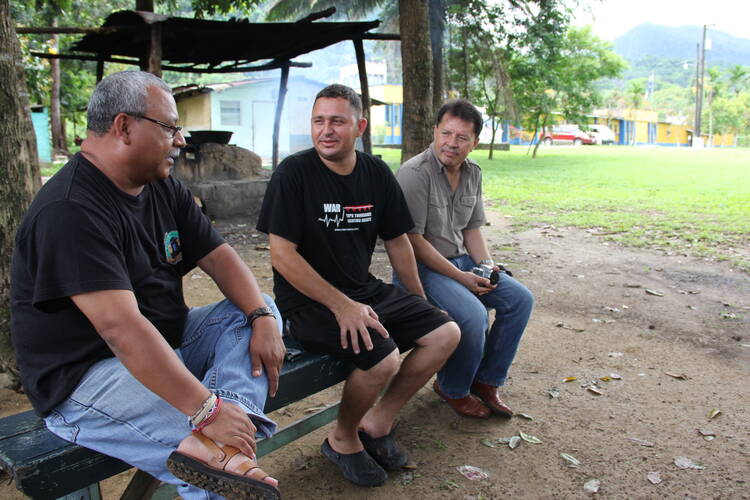In the film “Motorcycle Diaries” (2004) the viewer rides along for a 14,000-kilometer journey through Argentina, Chile, Peru, Colombia and Venezuela. The drivers are a young Che Guevara (Gael García Bernal) and his friend Alberto Granado (Rodrigo De la Serna). The film dramatizes an actual trip taken by the pair in 1952. Seeking adventure amid the natural beauty of the continent and its people, the pilgrimage leads them to discover another feature of the region: economic inequality and the oppression of workers. Guevara and Granada do a lot of sitting and listening as farmers tell stories of forced displacement and mine workers describe the struggle to find work. The experience sets the pilgrims on a revolutionary path.
When I participated in a delegation to Honduras in September 2013, many scenes and stories from this film came to mind. The primary purpose of our delegation was to sit and listen. Our hope was to find ways to be in solidarity with the people we encountered along the way. The delegation met with Jesuits and colleagues, community leaders and farmers, the intelligentsia in the capital city and community organizers in rural villages. In each place, we listened to stories about a country engulfed in violence, drug trafficking, police corruption, increasing militarization, the expansion of mining interests and the forced displacement of campesinos.
The experience touched my heart deeply. When I came home, I created a photo journal to share some of the images and stories from the trip. (Click here to open the photo journal.) I hope that you, too, will be moved by these people and their stories, and in your own way, find creative ways to respond.
America's coverage of Honduras
A photo journal from the delegation to Honduras, Luke Hansen, S.J. (Jan. 10, 2014)
Padre Melo: Pastoral and Transformational, Nicholas Napolitano (Oct. 29, 2013)
Sin and Grace in Honduras, a theological reflection by Rafael García, S.J. (Oct. 22, 2013)
Celebrating the Life of Padre Guadalupe, Nicholas Napolitano (Oct. 21, 2013)








